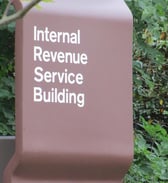The Treasury Department and Internal Revenue Service announced the federal income tax filing due date for individuals for the 2020 tax year has been pushed to May 17.
The IRS will be providing formal guidance in the coming days. However, individual taxpayers do not need to file any forms or call the IRS to qualify for the new federal tax filing and payment deadline.

Individual taxpayers who need additional time to file beyond the May 17 deadline can request a filing extension until Oct. 15 by filing Form 4868. While filing Form 4868 gives taxpayers until Oct. 15 to file their 2020 tax return, it does not grant them an extension of time to pay taxes due.
Regardless of the amount owed, interest or penalties, individual taxpayers have an extra month this year to make their federal income tax payments for the 2020 tax year. This postponement applies to individual taxpayers, including individuals who pay self-employment tax. Penalties, interest and additions to tax will begin to accrue on any remaining unpaid balances as of May 17. Individual taxpayers will automatically avoid interest and penalties on the taxes paid by May 17.
Taxpayers should pay their federal income tax due by May 17, 2021, to avoid interest and penalties.
The IRS urges taxpayers who are due a refund to file as soon as possible, with most tax refunds associated with e-filed returns being issued within 21 days.
While the filing and payment deadline was moved to May 17, estimated tax payments are still due on April 15. Estimated taxes must be paid as taxpayers earn or receive income during the year, either through withholding or estimated tax payments. In general, estimated tax payments are made quarterly to the IRS by people whose income is not subject to income tax withholding, including self-employment income, interest, dividends, alimony or rental income. Most taxpayers automatically have their taxes withheld from their paychecks and submitted to the IRS by their employer.
The postponement of the federal tax filing and payment deadline to May 17 only applies to individual federal income returns and tax (including tax on self-employment income) payments otherwise due on April 15. The announcement by the Treasury Department and the IRS does not cover state tax payments, deposits or payments of any other type of federal tax.
Taxpayers also will need to file income tax returns in 42 states, plus the District of Columbia by the date determined by their state. State filing and payment deadlines vary and are not always the same as the federal filing deadline. The IRS urges taxpayers to check with their state tax agencies for those details. In Ohio, the tax payment and filing deadline for state and local governments is April 15.





